CMN 376
ProCom Internship

1. Course Description
In the internship Professional Communication students have the opportunity to gain insight into professional practice. The internship will be 240 to 320 hours and scheduled during the spring/summer term between second and fourth year. The internship is optional with admission at the discretion of the internship committee. Minimum GPA of 3.0 (B) required for consideration. This course is graded on a pass/fail basis.
Last Revised
Prerequisites
Departmental consent required.
Delivery
Lab: 3 hours
2. Course Objectives & Learning Outcomes
- Contribute to professional communication activities in their sponsored organization
- Gain insights into corporate culture and operations
- Develop a greater understanding of career options while more clearly defining personal career goals
- Strengthen knowledge and increase competencies in the area of professional communication
- Produce written, oral, visual or media content on behalf of the sponsoring organization
- Add relevant work experience to their resume
- Gain practical experience within a communication environment
- Apply and integrate theory and practice
3. Topics Covered
4. Teaching Method
Workshops
In this internship course, students have the opportunity to gain industry experience by working in a variety of different fields and applying prior knowledge through hands-on activities. There will be a one-day mandatory class that students will need to attend. This is a pass/fail course.
Evaluation Methods
Students will provide one (1) journal submission every two weeks of their internship work. Each submission should be about 250 – 300 words. It should discuss activities, observations, challenges, successes, connection and divergence between practice and theory, and possible links to previous course content.
Students will have the option to choose one of four final assignments ranging from summary report, reflective paper, a portfolio, or a video/animation/webpage that will CMN 376 – ProCom Internship – Page 1 discuss and analyze the key experiences, acquired knowledge and capabilities, and the relationship of practice and theory. A class reflective discussion will occur at the midway point of the internship.
5. Course Materials
Students are required to read the Undergraduate Internship Handbook and may be required to read a sponsor’s handbook or other work-related material.
6. Policy
6.1 University Policies
Students are required to adhere to all applicable university policies found in their Online course shell in D2L and the Course Outline Policies.
6.2 Print and Digital Copying Guidelines:
Toronto Metropolitan University complies with Canada’s Copyright Act which protects both creators/owners and users of copyrighted materials. Students should familiarize themselves with TMU Copyright policies and procedures, and contact the Copyright and Scholarly Engagement Librarian at copyrt@torontomu.ca for questions, concerns and clarification of the copyright rules.
6.3 Turnitin.com
Turnitin.com is a plagiarism prevention and detection service to which Toronto Metropolitan University subscribes. It is a tool that helps instructors determine the similarity between student work and the work of other students who have submitted papers to the site (at any university), Internet sources, and a wide range of books, journals, and other publications. While it does not contain all possible sources, it gives instructors some assurance that students’ work is their own. No decisions are made by the service; it generates an “originality report,” which instructors must evaluate to judge whether something is plagiarized.
Students agree by taking this course that their written work will be subject to submission for textual similarity review to Turnitin.com. All submitted papers will be included as source documents in the Turnitin.com reference database solely for the purpose of comparing the similarity of such papers. Use of the Turnitin.com service is subject to the terms-of-use agreement posted on the Turnitin.com website. Students who do not want their work submitted to this plagiarism detection service must, by the end of the second week of class, consult with their instructor to make alternative arrangements. Even when an instructor has not indicated that a plagiarism detection service will be used, or when a student has opted out of the plagiarism detection service, if the instructor has reason to suspect that an individual piece of work has been plagiarized, the instructor is permitted to submit that work in a non-identifying way to any plagiarism detection service.
6.4 Email Communication
Toronto Metropolitan University requires that any official or formal email communication from students be sent from their official Toronto Metropolitan University electronic accounts.
6.5 Video and Audio Recording
No video or audio recording is permitted in class without the express permission of the instructor.
7. Learning Management System
Toronto Metropolitan University supports Brightspace by D2L as its official Learning Management System. University Policies governing Brightspace have been documented at the Courses @ Toronto Metropolitan University Privacy and Security website.

